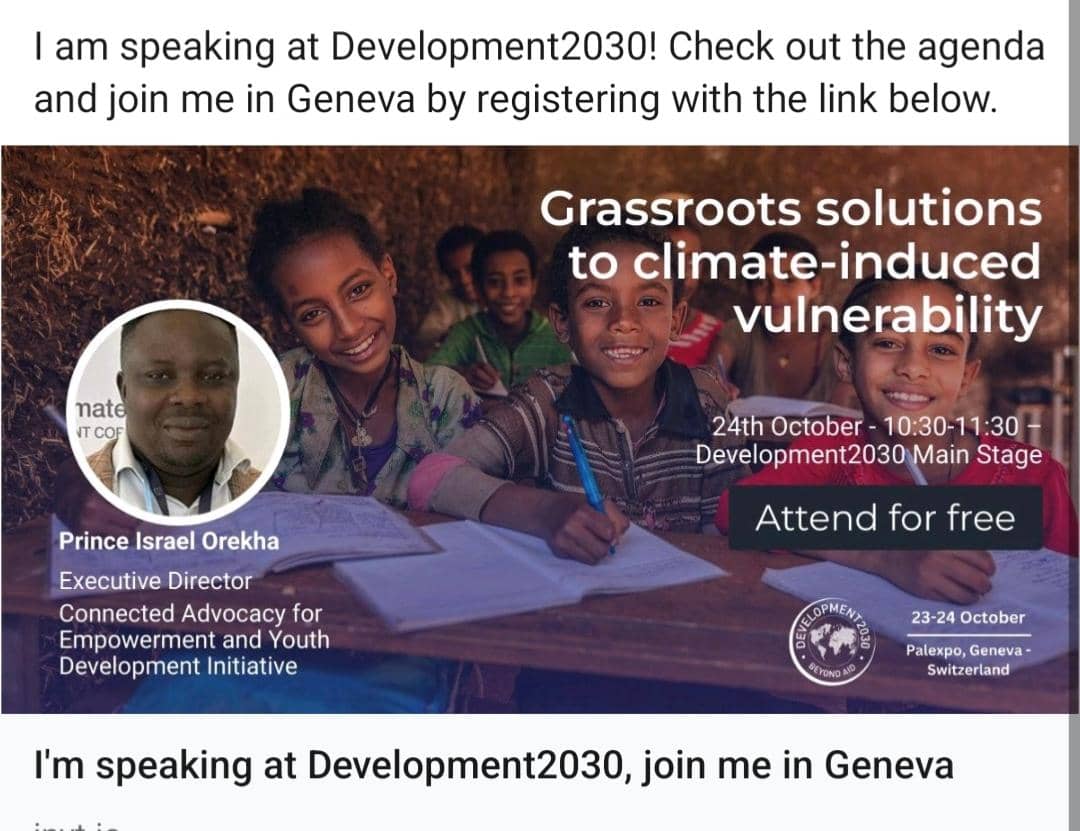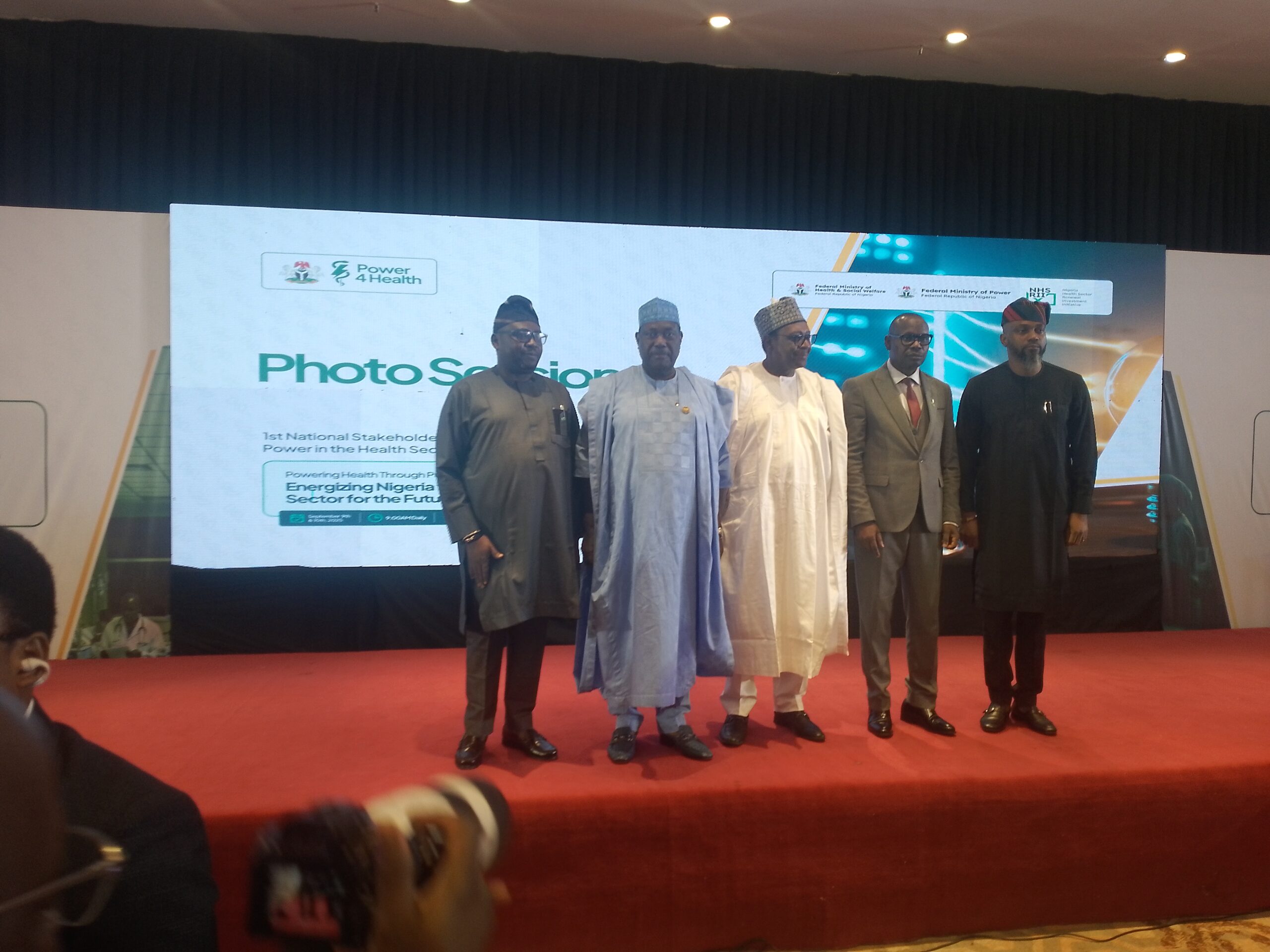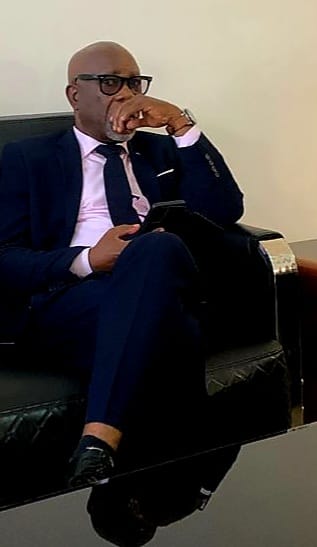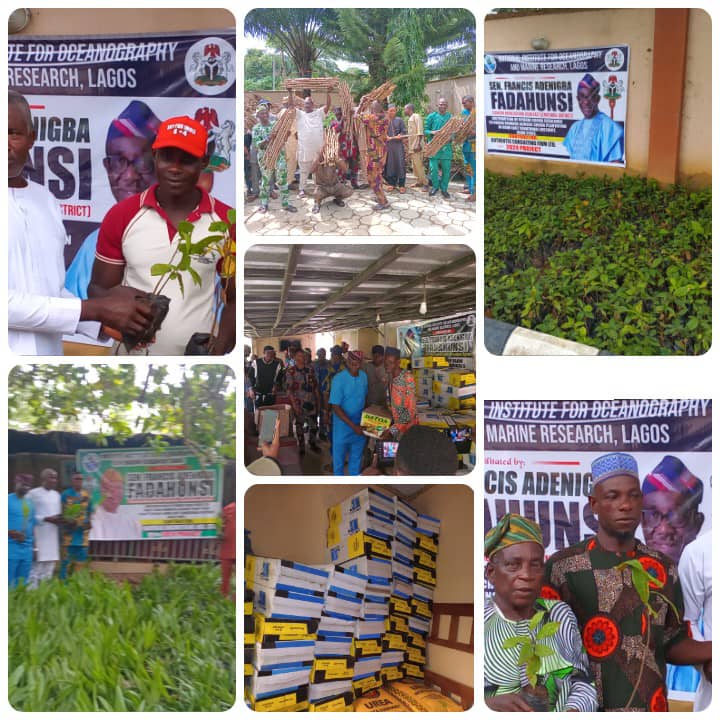Prince Israel Orekha joins Panelists to discuss grassroots solutions for climate induced vulnerability at Geneva

The Executive Director of Connected Advocacy for Empowerment and Youth Development, Prince Israel Orekha will be joining other panelists to discuss grassroots solutions for climate induced vulnerability at Geneva, Switzerland on October 24, 2024.
The event is put together by AidEx, a World-leading expo for humanitarian aid and development community.
Newsmen reports that the Panelists included (Moderator) Sevita Rama, Associate Director Communications, Trickle Up, Andrew Harper, Special Advisor on Climate Action, UNHCR and Rafael I Merchan, Chief of Party – Horizons Initiative, Catholic Relief Services.
Others included Karolina Frischkopf, CEO, HEKS/EPER, Prince Israel Orekha, Executive Director, Connected Advocacy for Empowerment and Youth Development Initiative and Tim Diphoorn, Europe Director, One Acre Fund.
The organisers said that often, the greatest burdens of climate crises are faced by people who are already shouldering the most social and economic exclusion.
A statement to the event noted:
“As we gather to explore the intersection of climate change and socio-economic exclusion, we are confronted with an urgent reality.
The most profound impacts of climate crises are disproportionately borne by those who are already marginalized and economically disadvantaged.
Recent research highlights a troubling pattern—communities facing the greatest social and economic exclusion are also on the front lines of climate-induced shocks such as natural disasters, famines, and displacement.
The Intergovernmental Panel on Climate Change (IPCC) reports that vulnerable populations are up to 30 times more likely to experience extreme climate events than their more wealthy counterparts.
The World Bank’s climate reports also underscore that these vulnerabilities are exacerbated by existing inequalities, creating a vicious cycle that hampers both adaptation and resilience.
Amidst these challenges, grassroots solutions emerge as a beacon of hope.
Evidence from various studies demonstrates that local, community-driven initiatives often offer the most innovative and contextually relevant strategies for climate adaptation and mitigation.
For instance, a recent study published in Nature found that community-led adaptation projects in low-income regions not only improved resilience but also fostered local empowerment and sustainability.
The discussion aims to delve into these proven grassroots approaches and explore how they can be scaled and supported effectively.
We will examine how nonprofits, the private sector, multilateral organizations, and civil society can work together to champion these solutions and address the systemic inequities that exacerbate climate vulnerability.
Our panelists from the private sector, multilaterals, and non-governmental organizations will share insights on overcoming barriers, leveraging local knowledge, and integrating grassroots solutions into broader climate strategies.
By understanding these dynamics, we hope to forge a path toward more equitable and climate-responsive development programs.
Orekha would e discussing some of the successes he had achieved advocacy around local solutions and community-based campaigns around climate solutions?
He would also be sharing how to apply his experience from the West Africa communities where had been working to uplift and centre grassroots organizing and action around climate change at the global level?.
Newsmen reports that Prince Israel Orekha had been committed to sustained and sustainable advocacy among the grassroots and hard to hard reach people, especially in the Oil-rich Niger Delta region of Nigeria.





